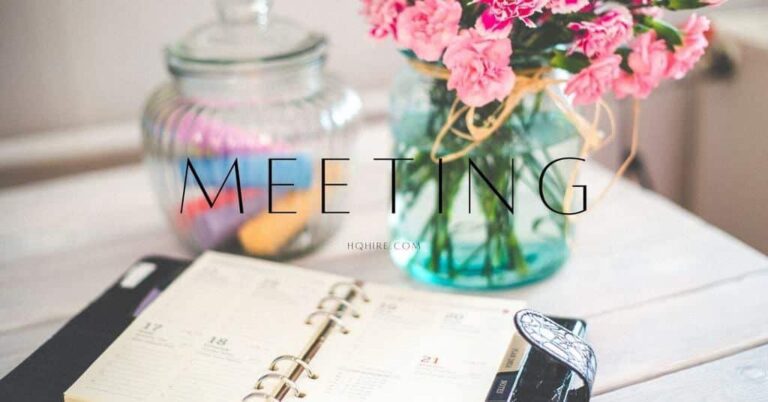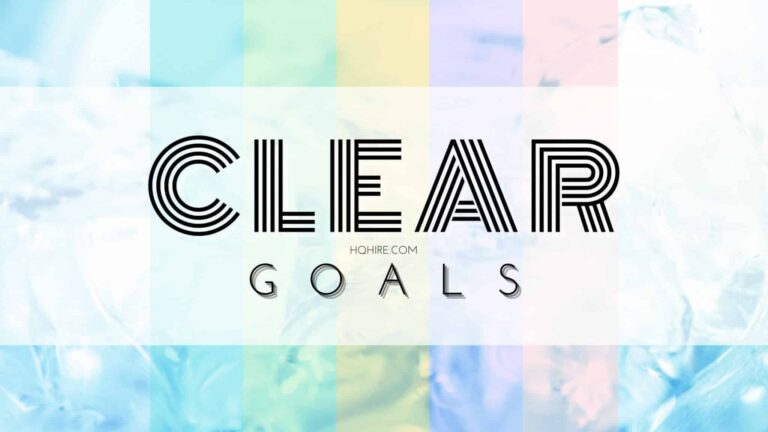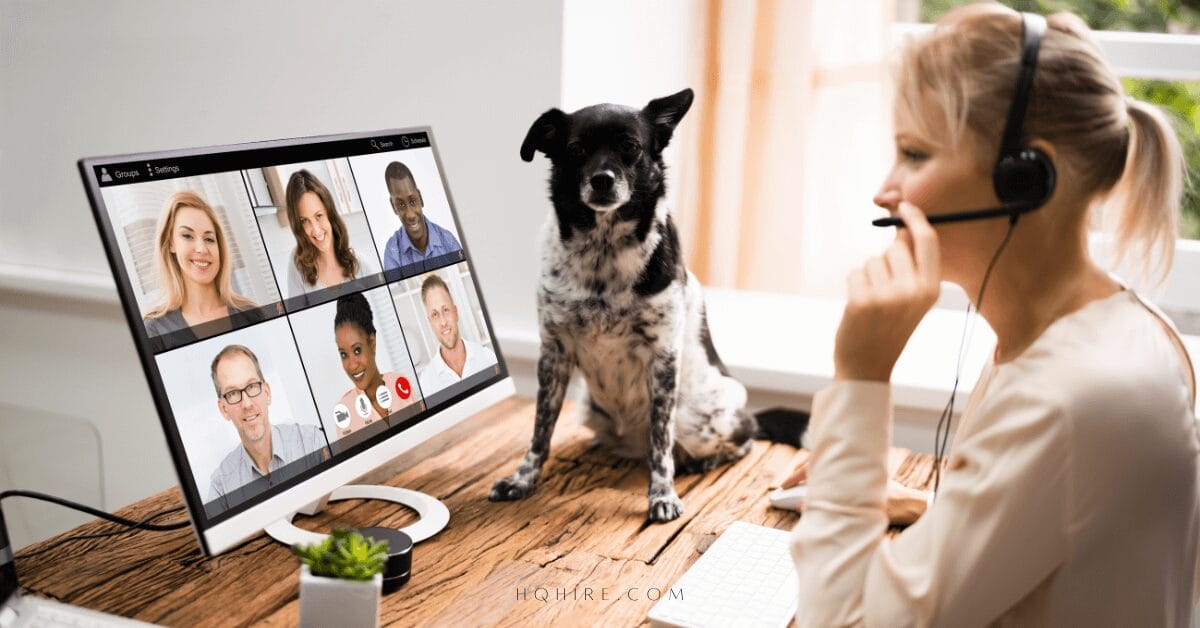“First interview is always the hardest”
Why?
Because this is the first step in the hiring process, where hundreds of candidates are screened and reduced to just a selected few.
First job interviews are sometimes also called:
- Screening Interview
- First-cut Job Interview
- Pre-Interview
- Phone interview
Many big companies especially MNCs have multiple interview processes (2-3). Each company designed its interview process differs according to the role and the company’s culture. Some companies such as Google and Facebook can have up to 5 interviews before you are selected for hire.
But before you can proceed to the second or third interview, you have to pass this critical first interview.
Here are some tips to guide you on your first interview. Learn these tips well and you will have a good chance of getting hired for your dream job!
Let’s Dive In!
Recommendations: 9 Best Tips When Answering Job Interview Questions
What Are The 10 Tips For Your First Job Interview
1. Do your Research
Research on the company you are applying to is one of the most fundamental preparations for job interviews. Take some time to learn about the company. Get yourself familiar with the operations of the company. With the power of the internet, there are tons of information with just a few clicks of your fingers.
Here are some of the things you may want to consider during your research:
- About us on the company’s website is an important page for you to learn more about the company, like what the company actually do.
- Company Mission tells about the objective of the company and how it is going to reach its goal.
- Vision is where you get to know what is the future that the company is trying to achieve.
- Careers give you an idea of your future if you join the company.
Why doing research on the company is important?
Doing research on the company allows you to understand what the company does better.
This allows you to know what kind of hard skills and soft skills they are looking for in a candidate.
Often during an interview, your interviewer will ask you what you know about the company. This is to see if you are really interested in joining the company or, just trying your luck.
“If you don’t know anything about the company, you will make a bad first impression which greatly affects your success in getting the job.”
How do you do your research?
Checking out the company’s social media page is probably the easiest way to understand more about the company. You will get information such as:
- What does the company do?
- What is the mission and vision of the company?
- Does the company give you a positive vibe?
- What do the people think about the company?
- What is the company culture really like?
Recommendations: How to Answer 10 Most common interview Questions?
2. Learn About the Job
Get to know more about the job role you are applying for. And ask yourself this simple question, “What is the job about?”
If you know what the job is about, you will know what attribute your interviewer is looking for in the candidate.
Maybe you know someone who is working in the industry, or you have a friend who knows someone who is working in some role similar to what you are applying for.
Give them a call and meet up for a cup of coffee.
The more you know about the job role the better your chances of getting hired.
How to start learning more about the job?
If you want to learn about the job role, try asking yourself these few questions.
- Does the job require some specific set of skills?
- Does the job require years of experience?
- Is it a management role or a technical role?
Understanding what is the job about and what are qualities that an employer is looking for allows you to better understand what kind of questions being asked during an interview.
“Where is the best place to learn about the job?”
The Job Description (JD) is the best place for you to learn and understand the job role you are applying for.
Information on a Job Description (JD)
A job description describes the duties and responsibilities of the person in the role. Here are a few pieces of information that you can find on a JD:
- Job title: Title of the position they are hiring
- Job purpose: An overview of the job and what they do.
- Job duties and responsibilities: List of duties and responsibilities of the job role, such as information on the soft skills and hard skills required for you to accomplish the task.
- Required qualification: Education, experience, knowledge, skills, and abilities required to do well or get qualified for that job role.
Recommendations: How to Answer, “Why should we hire you?”
3. Practice Your Interview
“Practice makes perfect.”
To be great in an interview, you’ll need to practice, practice and practice. Give yourself at least 2 weeks to practice before your interview.
Find a friend whom you can rely on and practice some of the most common interview questions with him or her.
How to practice for your interview?
Do’s when practicing your interview questions
- Do understand why the question is asked?
- Do practice your answers to each question and anticipate what are the next question being asked.
- Do internalize the answers you will be given for each interview question.
- Do practice by saying your answers clearly.
Don’ts’ when practicing your interview questions
- Do not only memorize the answers to each question but understand your answers.
- Do not practice your answers to interview questions at the last minute.
Variations of the interview question might be asked during the interview, but with enough practice, you will know how to handle them well.
More importantly, you want to answer each interview question:
- Naturally
- Convincingly
- Clearly
Recommendations: How to Answer, “Tell me about Yourself.”
4. Dress For The Occasion
Dress appropriately to the occasion. What you wear for the interview can either impress or depress the interviewer.
Choose what you wear according to the company’s culture and the position you are seeking.
If you are applying for a management role, a T-Shirt and shorts may not be the best way to dress for the interview.
When you are unsure of the dress code of the company, just stick with something safe and wear business casual or smart casual.
Different dress codes for men:
- Casual (T-shirt and jeans)
- Business casual (Button-up shirt long pants, etc.)
- Smart casual (Polo and jeans)
- Business or Informal (Slacks, tie, business suit, etc.)
- Semi-formal (Tie, business suit, etc.)
- Formal (Vest, tie, business suit, etc.)
Different dress codes for ladies:
- Casual (T-shirt and jeans)
- Business casual (Blouse, casual skirt, etc.)
- Smart casual (Slacks, dark jeans, collared top, etc.)
- Business or Informal (Business suit with heels, etc.)
- Semi-formal (Classy evening dress, etc.)
- Formal (Full dress)
The idea is to look professional, well-groomed, and suit the occasion.
When to know what to dress?
Do some research on the dress code for the industry. Research can be done online such as; on social media, by asking friends working in the industry, and by checking the company’s profile.
Alternatively, you can ask HR what are the dress code for the company before the interview.
Since HR is your contact person, often they will be more than willing to answer your question regarding the dress code.
Recommendations: How to Answer, “Tell me about a challenge you face at work.”
5. Be Punctual
Imagine the look of your wife, who has been waiting for you for over an hour. Does she look pleased or pissed? Probably, it will be more pissed than pleased.
“How about, being late for your interview?”
“What will your interviewers think of you?”
Even if it is due to reasons such as a traffic jam, or somehow that day you decided to help a grandma cross the road.
If you are late for your interview, the interviewer will be pretty pissed at you for being late for the interview. Being late for the interview will mean:
- You are not serious about the interview.
- You don’t respect the time of the interviewer.
- You are not interested in the job.
Be punctual. Because, if you are late for an interview, you will make a very bad first impression. Your interviewer may actually have a misconception of you not being a good candidate before you even start your interview.
Try these instead:
- Ensure you have enough buffer time for the unexpected.
- Research how to get to your interview before the day of the interview.
- Do a dry run and travel to the interview location a few days ahead, that will let you know how long it actually takes to get to the place.
When should you arrive at the interview location?
In general, it is always a good practice to show up at least 15 minutes early for the interview.
15 to 30 minutes early is usually enough time for you to:
- Keep yourself calm after all the traveling.
- Understand the company surrounding better.
- Make small talk with people working there to understand the culture better.
Recommendations: How to Answer, “Why should we hire you?”
6. Make Great First Impression
Give a good first impression is arguably the most important during an interview. Give a good first impression by doing the following:
- Look presentable
- Make good eye contact
- Have a good handshake
- Speak clearly with confidence
- Most Importantly, greet your interviewers
What should you do when you arrive at your parents-in-law’s house?
Yes, you greet your parent-in-law first!
A greeting that makes good eye contact, in clear confident voice and a firm handshake will probably give you the right first impression to your interviewers.
Not following these guidelines will probably make the first impression less favorable. Thus, it is important to remember these during your interview.
Making a good first impression with eye contact
If you are nervous when looking at the eyes of your interviewer, simply look at the area between the eyes and the nose instead. You will feel less nervous, yet your interviewer feels that you are looking at them.
Remember, when talking and answering the questions, try to look at the one who asks first, then all the rest of the interviewers for around 3 to 15 seconds each. You will look more natural.
Recommendations: How to Answer, “Why did you leave your job?”
7. Show Enthusiasm
Interviewers like it when they can see the passion in their candidates.
During your first job interview, your employer is interviewing dozens of candidates each day and you need to make yourself stand out from the crowd.
Look into the company’s mission statement. Find the passion and excitement you have in this job role that can help in achieving the mission of the company.
Showing your passion and enthusiasm is a great way to differentiate yourself from all the other candidates.
If you want to get hired, you need to get noticed in a good way.
Recommendations: What is the best way to answer, “Tell me about yourself?”
8. Get a Referral
Are you being referred by someone from the company? Don’t be afraid to let the interviewer know.
Most of the time, the interviewer will ask your referrer about your work ethic, skills, and experience.
Getting referred to a company give you a major advantage over all other candidates, because you have someone on your side who can vouch that you will be a good hire.
How to get a referral easily?
Make contact with people who are in the industry you want to go to. They will be the best person to help refer you to their company if you are a good fit for the position.
Recommendations: How to respond if you are rejected for the job application?
9. End your interview on a good note
The end of the interview is just as important as the beginning of an interview.
At the beginning, you want to give a good first impression.
At the end you want to give a good lasting impression.
Simply follow these 3 steps:
- Give a genuine smile
- Shake hands with each of your interviewers
- Thank them for their time
They have spent their last 30 to 60 mins with you on the interview, and you want to show them, that you appreciate them.
If possible, collect the interviewer’s business card. Let your interviewer know that they can contact you if they have any additional questions on their end that they need to clarify.
Why end your interview on a good note?
Generally, people only remember what happened at the start and the end. Thus, ending it with a good lasting impression will give you an unfair advantage over all other candidates.
Recommendations: 8 Best Questions To Ask Your Interviewer
10. Follow-Up on Your Job Application
Follow-up is where you can really differentiate yourself from all other candidates.
90% of all candidates don’t follow up. Interviewers do dozens of interviews per week and most candidates get easily forgotten by the interviewer.
Even if most candidates did all the 9 tips above, you will be in the top 10% of the candidates who only do this last step and get remembered.
A good follow-up also helps the interviewer to recall your name and face. This also makes a good impression, by showing that you respect their time, and is thankful for the chance given.
When to send your follow-up email?
When you’ve finished your interview, write a follow-up email at the end of the day of the interview.
- Thanks to your interviewer for their time.
- Let them know you will be waiting for their reply.
- Let them know how you can be contacted if you are shortlisted.
Lastly, sent your email after office hours, so that your email will be the first one they see in the morning. This gives you a higher chance for your email to get opened and read.
Recommendations: How to write an email to HR to ask about your joining date?
Up Next…Dos and Don’ts when sneaking out for Job Interviews.
Do you think this post helps you in some way or another?
Come tell us your thoughts below! Or share with a friend who may find this useful!
Read Also:
- How to Answer “Tell Me About a Time You Inspired Your Team” Job Interview Question (Tips and Examples)
- How to Answer “Tell me about a time you overcome a setback” Job Interview Question (Tips and Examples)
- How to Answer “Tell me about a time you built something from scratch” Job Interview Question (Tips and Examples)
- How to Answer “Tell Me About a Time You Handled an Ethical Dilemma” Job Interview Question (Tips and Examples)
- How to Answer “Tell Me About a Time You Dealt With a Difficult Team Member” Job Interview Question (Tips and Examples)
Join over 11,000+ achievers who are committed to achieving their career goals!






